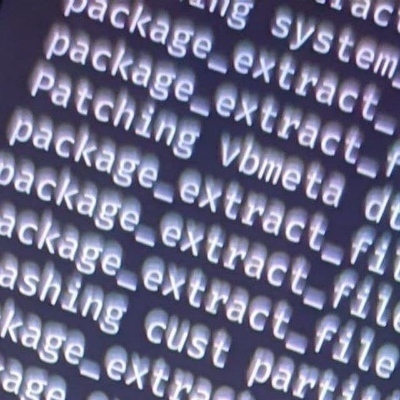- Anonymous Planet - a community contributed online guide to anonymity written for activists, journalists, scientists, lawyers, whistle-blowers, and good people being oppressed, censored, harassed anywhere
- Privacy Guides - a non-profit, socially motivated website that provides information for protecting your data security and privacy
- Extreme Privacy 4th Edition - Michael Bazzell has helped hundreds of celebrities, billionaires, and everyday citizens disappear completely from public view.
- Anonymous Land - a community dedicated to providing anonymity enhancing guides and services
- Prism Break - opt out of global data surveillance programs like prism, xkeyscore and tempora.
- The New Oil [Tor] - the beginner’s guide to data privacy & cybersecurity
- Techlore - a small team educating people about digital rights, privacy, security, digital control, and other important topics to push the world towards a safer internet
- Qubes OS for Anarchists [Tor] - Qubes OS is a security-oriented operating system (OS), which means it is an operating system designed from the ground up to be more difficult to hack. Given that anarchists are regularly targeted for hacking in repressive investigations, Qubes OS is an excellent choice
- GrapheneOS for Anarchists - [Tor] - anarchists should not have phones. if you must use a phone, make it as difficult as possible for an adversary to geotrack it, intercept its messages, or hack it. this means using grapheneos
- Tails for Anarchists [Tor] - tails is an operating system that makes anonymous computer use accessible to everyone. tails is designed to leave no trace of your activity on your computer unless you explicitly configure it to save specific data
- Tails Opsec for Anarchists [Tor] - additional precautions you can take that are relevant to an anarchist threat model - operational security for tails
- Make Your Electronics Tamper-Evident [Tor] - if the police ever have physical access to an electronic device like a laptop, even for five minutes, they can install hardware keyloggers, create images of the storage media, or otherwise trivially compromise it at the hardware, firmware, or software level. one way to minimize this risk is to make it tamper-evident
- Encrypted Messaging for Anarchists [Tor] - This article provides an overview and installation instructions for Tails, Qubes OS, and GrapheneOS encrypted messengers
- Kill the Cop in Your Pocket [Tor] - your phone’s location is tracked at all times, and this data is harvested by private companies, allowing police to bypass laws requiring them to obtain a warrant
- Remove Identifying Metadata From Files [Tor] - metadata is ‘data about data’ or ‘information about information’. in the context of files, this can mean information that is automatically embedded in the file, and this information can be used to deanonymize you
- Defending against Stylometric attacks [Tor] - stylometric fingerprinting analyzes unique writing style (i.e., it uses stylometry) to identify the author of a work. it’s one of the most common techniques for de-anonymization, used by adversaries ranging from trolls to law enforcement
- EFF Surveillance Self-Defense: The Basics - surveillance self-defense is a digital security guide that teaches you how to assess your personal risk from online spying. it can help protect you from surveillance by those who might want to find out your secrets, from petty criminals to nation states
- EFF Surveillance Self-Defense: Tool Guides - step-by-step tutorials to help you install and use handy privacy and security tools
- Into the Crypt - the art of anti-forensics
- Advanced Privacy and Anonymity Using VMs, VPN’s, Tor - a series of guides that explains how to obtain vastly greater freedom, privacy and anonymity through compartmentalization and isolation through nested chains of VPNs and Tor
- How to create anonymous Telegram and Signal accounts without a phone - a guide for using Whonix & Anbox to create anonymous mobile accounts without a phone
- Security Tips & Devices for Digital Nomads - various tools and gadgets for OpSec, written with a preference for practical usability
- Telegram Security Best Practices - quick tips that will help you sleep better at night when using Telegram
read more at: https://git.hackliberty.org/hackliberty.org/Hack-Liberty-Resources/
Neat. Thanks.
I don’t agree with all the sources listed on the website, but that’s ok. The information should still be on the list.
What I think most beginners need is a simple way to determine their threat model. Otherwise, someone just stumbling down the rabbit hole might see a list or a site like this as a “to-do list” and drive themselves crazy.
What a superb list! Saved.
I was thinking of writing a guide on how to lead a digitally private and secure “life” since so many bad guides are out there.
I’d like to add that the best private and secure Operating Systems are:
- BSD
- HardenedBSD
- Commercial UNIX (HP-UX, AIX, IRIX)
- Void & Alpine Linux
- Indie Operating Systems
Private Search Engines
- Searx
- Searx.envs.net
Private Browsers
- Lynx
- Librewolf
- Waterfox
- Qutebrowser
- Hardened Firefox (at my repo)
Qubues runs containers yes, but the unique use of a paravirtualized Fedora Linux kernel itself leaves open lots of unique security holes and is therefore extremely hard reviewing the security of it yourself.
GrapheneOS is constantly being showboated by Ed Snowden which is a red flag and I did experience app contamination on it. I would also suggest PostmarketOS. Definite no on CalyxOS.
I’d like to throw in my own Free Open Source, git clone, security repositories for BSD and Firefox available on Bitbucket, Github, and my own self-hosted git server with the latest files. All my software is currently written in Python (my very first Python scripts!) and short so it’s very easy to review.
Is there any reason you mentioned that specific searx instance?




